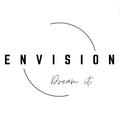Work experience ideas for future engineers

If you’re thinking about becoming an engineer, work experience can give you a real sense of what different engineering fields actually involve. Engineering is a broad field with lots of different specialisations, from civil and mechanical to software and environmental, and trying out a few different areas can help you figure out which path might suit you best.
The good news is that engineering work experience doesn’t always mean spending weeks in a professional firm. While traditional placements are valuable, there are plenty of other ways to get hands-on experience and build your understanding of how engineers solve real-world problems. Some options might be available through your school, others through local businesses or community projects, and some you can even do independently.
Traditional engineering firms
Many engineering companies offer formal work experience programs, especially the larger firms. Civil engineering companies might take you out to construction sites to see infrastructure projects in progress, while mechanical engineering firms could show you product design and manufacturing processes. These placements typically run for a week or two and give you exposure to the professional side of engineering, from client meetings to technical drawings and site inspections.
For example, BAE Systems offers work experience programs where you can get hands-on exposure to defence engineering projects. If you’re in Queensland and interested in aviation and aerospace, Helimods runs specialised work experience programs that let you work alongside engineers on real helicopter modifications and aerospace projects.
The application process can be competitive, so it’s worth applying early and to multiple firms. Don’t just focus on the big names either – smaller local engineering consultancies often have more flexibility and might give you more hands-on involvement in projects.
Trades and technical businesses
Plumbers, electricians, mechanics, and other trades offer brilliant insight into practical engineering principles. You’ll see how systems actually work in the real world, learn about problem-solving on the spot, and understand the technical side of installation and repair. This type of experience is often easier to arrange than formal engineering placements, and many tradies are happy to have an extra pair of hands for a few days.
These placements also help you understand the relationship between engineering design and practical implementation, which is valuable regardless of which engineering field you eventually pursue.
Research organisations and universities
Some universities run work experience programs or open days where you can spend time in their engineering labs, attend lectures, and talk to current students and researchers. You might get to see 3D printing facilities, robotics labs, or civil engineering testing equipment. This gives you a taste of what studying engineering at university involves and can help you decide which specialisation interests you most.
CSIRO offers virtual STEM work experience programs that let you work on real scientific and engineering challenges from home. These programs are particularly useful if you can’t access in-person placements or want to explore multiple areas of engineering and science before committing to a specific field.
Contact universities directly to ask about opportunities, especially during school holidays when they might have programs specifically designed for high school students.
Technology and software companies
If you’re interested in software engineering, computer engineering, or any field involving technology, work experience at tech companies or IT departments can be incredibly valuable. You might shadow software developers, learn about system design, or see how engineers troubleshoot technical problems. Even if you’re more interested in other engineering fields, understanding technology is increasingly important across all engineering disciplines.
Many schools have connections with local tech businesses, so check with your careers adviser about what might be available.
Manufacturing and production facilities
Manufacturers often welcome work experience students to see their production processes. You could visit food production facilities, automotive manufacturers, pharmaceutical companies, or any business that makes physical products. You’ll see how engineers design efficient production systems, maintain quality control, and solve problems when things go wrong.
These placements help you understand industrial engineering, mechanical systems, and the practical application of engineering principles in commercial settings.
Local council engineering departments
Your local council probably employs civil engineers who work on roads, drainage, parks, and public infrastructure. Work experience here might involve visiting project sites, reviewing plans, or understanding how councils manage public assets. It’s particularly good if you’re interested in civil or environmental engineering, and councils are often keen to support local students.
Environmental organisations
Environmental engineering is a growing field, and organisations focused on sustainability, water management, renewable energy, or conservation can offer relevant experience. You might learn about water testing, renewable energy systems, environmental impact assessments, or sustainable design principles.
These placements show how engineering can address environmental challenges and might appeal if you’re interested in making a positive impact through your future career.
Starting your search
When looking for engineering work experience, start by thinking about which type of engineering interests you most, then research local businesses and organisations in that field. Your school’s careers adviser might have established connections, and family friends or relatives might work in relevant industries and be willing to help.
Engineers Australia has useful resources for students exploring engineering careers, including information about different specialisations and pathways into the profession. And you can search for more work experience opportunities in our database here.
Don’t be discouraged if your first choice isn’t available – any engineering-related experience is valuable, and trying different areas can actually help you make better decisions about your future specialisation. The key is to show genuine interest, be reliable, and ask plenty of questions while you’re there.
